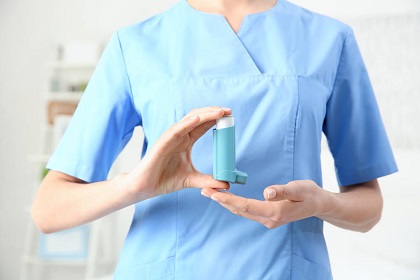Search
What is an upper respiratory infection?
An upper respiratory infection is also called a common cold. It can affect your nose, throat, ears, and sinuses.
What causes a cold?
The common cold is caused by a virus. There are many different cold viruses, and each is contagious. This means the virus can be easily spread to another person when the sick person coughs or sneezes. The virus can also be spread if you touch something that a person with a cold has touched. You are more likely to get a cold in the winter. Your risk of getting a cold may be increased if you smoke cigarettes or have allergies, such as hay fever.
What are the signs and symptoms of a cold?
Cold symptoms are usually worst for the first 3 to 5 days. You may have any of the following:
• Runny or stuffy nose
• Sneezing and coughing
• Sore throat or hoarseness
• Red, watery, and sore eyes
• Fatigue
• Chills and fever
• Headache, body aches, or sore muscles
How is a cold treated?
There is no cure for the common cold. Colds are caused by viruses and do not get better with antibiotics. Most people get better in 7 to 14 days. You may continue to cough for 2 to 3 weeks. The following may help decrease your symptoms:
• Decongestants help reduce nasal congestion and help you breathe more easily. If you take decongestant pills, they may make you feel restless or cause problems with your sleep. Do not use decongestant sprays for more than a few days
• Cough suppressants help reduce coughing. Ask your doctor which type of cough medicine is best for you
• NSAIDs, such as ibuprofen, help decrease swelling, pain, and fever. NSAIDs can cause stomach bleeding or kidney problems in certain people. If you take blood thinner medicine, always ask your doctor if NSAIDs are safe for you. Always read the medicine label and follow directions
• Acetaminophen decreases pain and fever. It is available without a doctor's order. Ask how much to take and how often to take it. Follow directions. Read the labels of all other medicines you are using to see if they also contain acetaminophen, or ask your doctor or pharmacist. Acetaminophen can cause liver damage if not taken correctly. Do not use more than 4 grams (4,000 milligrams) total of acetaminophen in one day
How can I manage my cold?
• Rest as much as possible. Slowly start to do more each day
• Drink more liquids as directed. Liquids will help thin and loosen mucus so you can cough it up. Liquids will also help prevent dehydration. Liquids that help prevent dehydration include water, fruit juice, and broth. Do not drink liquids that contain caffeine. Caffeine can increase your risk for dehydration. Ask your doctor how much liquid to drink each day
• Soothe a sore throat. Gargle with warm salt water. This helps your sore throat feel better. Make salt water by dissolving ¼ teaspoon salt in 1 cup warm water. You may also suck on hard candy or throat lozenges. You may use a sore throat spray
• Use a humidifier or vaporizer. Use a cool mist humidifier or a vaporizer to increase air moisture in your home. This may make it easier for you to breathe and help decrease your cough
• Use saline nasal drops as directed. These help relieve congestion
• Apply petroleum-based jelly around the outside of your nostrils. This can decrease irritation from blowing your nose
• Do not smoke. Nicotine and other chemicals in cigarettes and cigars can make your symptoms worse. They can also cause infections such as bronchitis or pneumonia. Ask your doctor for information if you currently smoke and need help to quit. E-cigarettes or smokeless tobacco still contain nicotine. Talk to your doctor before you use these products
What can I do to prevent the spread of the common cold?
• Try to stay away from other people during the first 2 to 3 days of your cold when it is more easily spread
• Do not share food or drinks
• Do not share hand towels with household members
• Wash your hands often, especially after you blow your nose. Turn away from other people and cover your mouth and nose with a tissue when you sneeze or cough
When should I seek immediate care?
• You have chest pain or trouble breathing.
When should I contact my doctor?
• You have a fever over 39ºC
• Your sore throat gets worse or you see white or yellow spots in your throat
• Your symptoms get worse after 3 to 5 days or your cold is not better in 14 days
• You have a rash anywhere on your skin
• You have large, tender lumps in your neck
• You have thick, green, or yellow drainage from your nose
• You cough up thick yellow, green, or bloody mucus
• You are vomiting for more than 24 hours and cannot keep fluids down
• You have a bad earache
• You have questions or concerns about your condition or care
CARE AGREEMENT:
You have the right to help plan your care. Learn about your health condition and how it may be treated. Discuss treatment options with your caregivers to decide what care you want to receive. You always have the right to refuse treatment.
© 2017 Truven Health Analytics LLC All illustrations and images included in CareNotes® are the copyrighted property of A.D.A.M., Inc. or Truven Health Analytics.
Click the link for more information on Family Medicine Clinical Service
Click the link for more information on Respiratory Medicine Clinical Service











